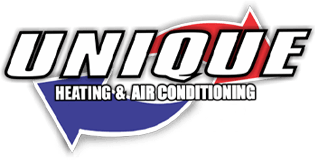Many of us know heat pumps as energy-efficient appliances that keep us comfortable during the cold and hot seasons. We love how they help us save on energy expenses by combining the functions of air conditioners and furnaces.
But how does a heat pump work exactly during the cold season?
If you’ve been asking yourself the same question, then you came to the right place. Heat pumps have a very interesting mechanical process that efficiently keeps our homes warm during the cold season. Here’s how the heat pump works.
Pulling Heat From Cool Air
Heat pumps are becoming excellent alternatives to oil or gas boilers because of how efficient and environmentally friendly they are. A typical heat pump uses the heat in the air outside to heat your home. Therefore, the unit doesn’t burn fuel to generate heat; it moves heat from one area to another.
Heat usually moves from an area with a high temperature to that with a low temperature; during winter, a heat pump uses a little amount of energy to reverse this process. In other words, it pulls heat out of a relatively cooler area and transfers or pumps it into a warmer space. This means that it’s possible to get heat out of your 390F outdoor air and transfer it to your warmer home. All you need to do is combine it with something whose temperature is below 390F. That’s the job of a heat pump.
How the Heat Pump Handles the Heat Transfer
When the unit pulls heat from your surroundings, it sends it into a component known as a heat exchanger. The heat exchanger contains a special fluid known as the refrigerant. This fluid is important because it quickly absorbs heat from the environment. It can absorb heat in very low temperatures of up to -500F, and that’s why a heat pump works really well during winter.
When the fluid absorbs the heat getting into your heat pump, it evaporates. The resulting gas is then compressed so that the temperature increases further. The heat is transferred by the gas into your central heating system, making the refrigerant cool down gradually until it condenses into a liquid state. This process takes place in the condenser, the second heat exchanger. Heat is sent into the air around the coils as the gas cools since it has to go somewhere. At this point, the warm air can be blown into your house with a fan.
This explains why heat pumps don’t create heat but merely facilitate its exchange from one location to another.
The Reversing Valve
Since a heat pump can either heat or cool your house, there is a special component known as the reversing valve that allows you to select the mode you want (cooling or heating). This valve contains three smaller valves and an electrical component on top. There is also a sliding mechanism inside the reversing valve that adjusts depending on the valve’s current mode; that is, whether it’s heating or cooling.
If you want to switch from cooling to heating, for instance, all you need to do is press the appropriate button on your thermostat. The thermostat will cue your heat pump to switch to heating mode. More precisely, the electrical component triggers the sliding mechanism, and the refrigerant contained in the valve swings into action. The change in the refrigerant’s flow direction is exactly what changes your heat pump’s mode.
When Your Heat Pump Fails
If your heat pump is not maintained properly or regularly, the reversing valve may get stuck in one mode or between the two modes. When that happens, your unit will not work properly until it is repaired properly. Your unit’s solenoid may also become faulty, affecting the function of the reversing valve. The good news is that a qualified HVAC technician can repair such issues easily. However, the best way to ensure your heat pump serves you properly during winter is to ensure it is serviced on a regular basis by a professional.
Do you wish to switch to a heat pump today?
Do you want an expert to maintain or repair your heat pump?
If you do, then we’re the team to call. Unique Heating & Air Conditioning Inc. has all the skills, expertise, and experience required to install, maintain, or repair your heat pump professionally. Our goal is to keep your home in Northglenn, CO, warm, and comfortable during the cold season. Call us today to learn more about our services. We also repair, maintain, and install other heating and cooling systems.





